Credit intermediary not a lender. Representative Example: Amount of credit: £1000 for 11 months at £102.22 per month. Total repayment of £1226.64. Interest: £226.64 Interest rate: 47.5% pa (fixed). APR rates range from 9.3% APR to 102.5%.
What are Unsecured Loans?
When you're considering applying for a loan, it's important to get specific. There are, after all, a variety of types of loans available to you: payday, short-term, no guarantor, instalment, logbook, and many more. The type you may want and the type you can get depend greatly on your own personal circumstances. One key category of loans is known as "unsecured," and describes a loan type that many borrowers take advantage of.
Basically, unsecured loans are loans that don't require collateral from the borrower. While many banks and other financial institutions will often require you to put collateral down for your loan, such as a home or car, or any item that you own and has some substantial worth, unsecured loans are given based exclusively on the borrower's credit status. This means that should a borrower be unable to repay their loan on the agreed upon repayment date, a lender cannot take their possessions.
An unsecured loan can be a useful option for many borrowers, particularly those individuals who don't own possessions that are worth enough to serve as collateral. While a potential borrower's credit status could remain a factor, these loans should remain a consideration for individuals looking for financial assistance.
How do I pick a lender?
It all starts with research. Look into the online payday lenders available to you and the requirements they have for their borrowers. Don't consider just the technical aspects of what the borrower/lender relationship will entail, but try and get a sense of the lender's personality. It's important to feel comfortable and confident with your lender, as this is one of the best indicators that you can have a fruitful long-term relationship with them. Make certain that the lender has a history of customer care and evidence of data protection, such as McAfee SECURE™. By verifying these things, you'll be able to verify that you're entering into a partnership with a company that truly has your best interests at heart, if approved.
Finding Unsecured Loans in the UK
Nobody wants to find themselves in need of emergency funding, but life can often throw emergencies our way that require cash we simply may not have. If this is a situation you find yourself in, you may go hunting for unsecured loans so as to avoid the risk of giving up assets. But how do you ensure that the lender you choose is the right one for you?
At QuickQuid, our straightforward online application system was built with customers better. Our unsecured loans do not require our customers to give up or list their assets. With loan amounts available up to £1500,† and 24 repayment options to choose from, QuickQuid loans are designed to give customers options that fit their unique financial situation.

What about QuickQuid?
Authorised under the Financial Conduct Authority, QuickQuid is a brand with a proven track record of customer consideration. We can arrange short-term loans that are available with 24 monthly repayment options, giving approved borrowers the freedom to create a loan that works for them. Requiring just a valid UK bank account, UK residency, verification of employment and the borrower to be over 18 years of age, the stipulations to apply for a QuickQuid arranged loan make them a real possibility for a variety of borrowers. With loan amounts of £1500† available for new customers, and £2000† available for existing customers, QuickQuid has helped hundreds of thousands of approved customers with their financial dilemmas, and should be an option worth considering in your quest for the right loan.
Questions and Answers
Some FAQs
What happens if I don't repay an unsecured loan?
Keeping in mind that we are speaking in general terms, not pertaining to anyone's specific financial situation, the lender typically sends standard notifications to inform the borrower of a default on the credit agreement. Depending on the loan's size, the situation may eventually escalate to legal proceedings. If the borrower possesses any assets, these assets may be seized and sold to repay the initial debt. The term "unsecured" solely pertains to the status of assets during the loan's term. In the event of a default, a court may order assets to be secured at a later stage.
Numerous factors influence how a lender handles a defaulted loan. They will consider the loan's amount, their chances of recovery, the borrower's assets (property, cars etc), and the message sent by not enforcing debts. This process is quite intricate, and different lenders follow distinct procedures. It is crucial to carefully review any loan agreement, as each lender outlines their escalation methods, including penalty charges and default notices on credit records.
Why are Unsecured Loans more expensive than secured Loans?
Unsecured loans are always going to be more expensive because the risk of the lender losing money if the borrower fails to repay the debt is significantly higher. Everyone has heard the saying "you can't get blood out of a stone," and that's how unsecured loans work. Lenders often have no way of recovering their money if the worst-case scenario occurs.
Secured loans, on the other hand, work differently. Borrowers would provide some form of security, such as adding the lender to their property deeds. If a secured borrower stops making repayments, the lender could potentially force the sale of the property to recover their money.
A typical secured loan may have an interest rate as low as 2% above the Bank of England's base rate, whereas unsecured loans can have interest rates ranging from 7% to 100% or even higher.
What's the most I can borrow?
First-time applicants can borrow up to £1,500, while existing customers can apply to borrow up to £2,000. Borrowers have the option to repay the loan over a period of up to 24 months.
What can I spend the money on?
You can use the loan for anything you want. Our application form does ask for the reason you are applying for the loan, and we encourage customers to use it for that intended purpose. However, to the best of our knowledge, there isn't a legal requirement that you must spend the money on that specific project.
Secured loans operate differently. For instance, if a lender provides funds for a new property extension, it's typically based on the expectation that the value of the property will increase as a result. If the borrower were to use the funds for other purposes, it might be viewed as a breach of the agreement, potentially leading to concerns or actions from the lender.
What's the highest value unsecured loan?
(Excluding Credit Card Limits) The largest unsecured loan we've come across for an average individual was £50,000, which was offered by Barclays to one of their current account customers back in 2007. In the era before the 2008 Credit Crunch, credit was readily available, and nearly anyone seeking a loan could obtain one in some form or another. Over the last 12 months, the highest unsecured loan we've observed was £25,000, granted to an individual with a strong credit history.

